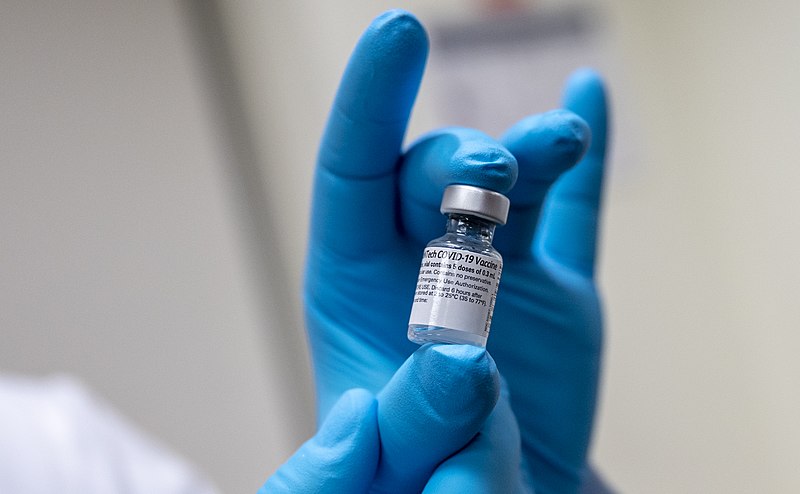Around half of over-80s may require 2 Pfizer jabs for protection from COVID-19
Embargoed until:
Publicly released:
2021-07-01 01:00
Around half of people aged over 80 require a second dose of the Pfizer-BioNTech COVID-19 vaccine to achieve maximum protection from the virus, according to a UK and Mexican study of 140 participants. The team compared the post-vaccination immune response in 80 elderly people and 60 younger healthcare workers. Three weeks after the first dose, a lower proportion of the elderly participants achieved an adequate immune response compared to those in the younger group, the scientists say. Elderly participants were also less able to neutralise variants of concern, such as the Alpha (B.1.1.7) and Beta (B.1.351) variants, compared to younger participants following a first dose. But, after the second dose, antibody responses were comparable in all participants. The findings have important implications for the roll-out of the global vaccine programme, the researchers add.
Journal/conference: Nature
Link to research (DOI): 10.1038/s41586-021-03739-1
Organisation/s: Cambridge Institute of Therapeutic Immunology & Infectious Disease, UK
Funder: RKG is supported by a Wellcome Trust Senior Fellowship in Clinical Science (WT108082AIA). DAC is supported by a Wellcome Trust Clinical PhD Research Fellowship. KGCS is the recipient of a Wellcome Investigator Award (200871/Z/16/Z). MAL is supported by the Biotechnology and Biological Sciences Research Council (BBS/E/B/000C0427, BBS/E/B/000C0428). This research was supported by the National Institute for Health Research (NIHR) Cambridge Biomedical Research Centre, the Cambridge Clinical Trials Unit (CCTU), the NIHR BioResource and Addenbrooke’s Charitable Trust, the Evelyn Trust (20/75), UKRI COVID Immunology Consortium. GBM and PCA were supported by UNAM-FESC-PIAPI Program Code PIAPI2009 and by CONACyT 829997 fellowship. IATMF is funded by a Sub-Saharan African Network for TB/HIV Research Excellence (SANTHE, a DELTAS Africa Initiative (grant DEL-15–006)) fellowship.
Media release
From: Springer Nature
Age-related immune responses to the SARS-CoV-2 mRNA vaccine
Around half of people over 80 years of age require a second dose of the Pfizer-BioNTech SARS-CoV-2 mRNA-based vaccine in order to achieve maximum virus neutralization, a Nature study involving 140 participants suggests. The findings have important implications for the roll-out of the global vaccine programme.
Ravindra Gupta and colleagues compared the post-vaccination immune response in 80 elderly people and 60 younger healthcare workers. Three weeks after the first dose of the Pfizer-BioNTech vaccine, a lower proportion of participants over the age of 80 achieved adequate neutralization titres compared to those in the younger group. Elderly participants were also less able to neutralize variants of concern, such as the Alpha (B.1.1.7) and Beta (B.1.351) variants, compared to younger participants following a first dose. After the second dose, however, neutralizing antibody responses were comparable in all participants.
Vaccines remain the cornerstone for containing the COVID-19 pandemic, but the trials that underpin their development involve few participants above the age of 80. The results presented here may help to explain the reports of severe infection in people vaccinated with just one dose. With vaccines in short supply, some countries have or are planning to extend the three-week gap between doses to twelve weeks, but the authors urge caution. The elderly are a high-risk population that warrant specific measures to boost vaccine responses, especially where variants of concern are circulating. In addition, if vaccine strategies lead to suboptimal immunization, this may provide conditions that are conducive to the generation of new, vaccine-resistant variants.
Attachments:
Note: Not all attachments are visible to the general public


